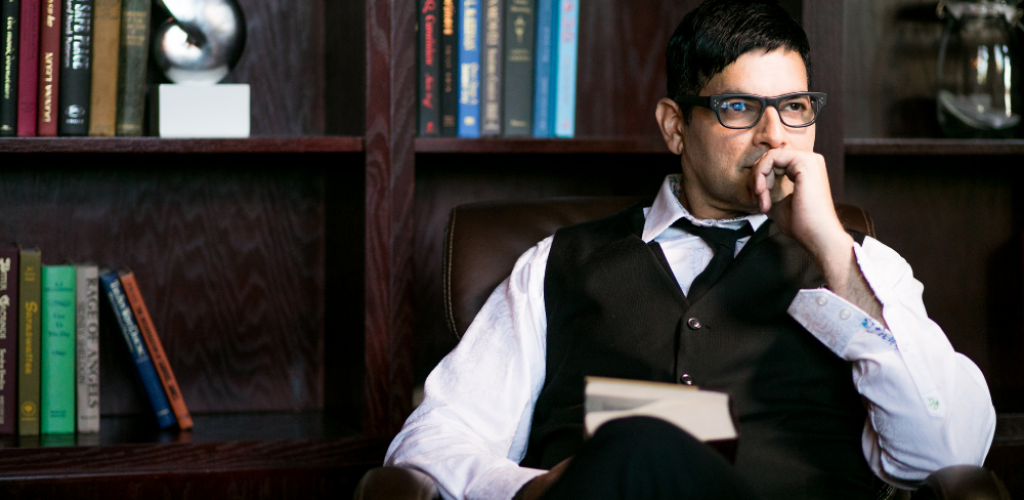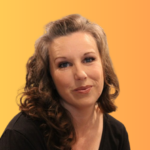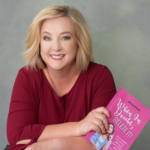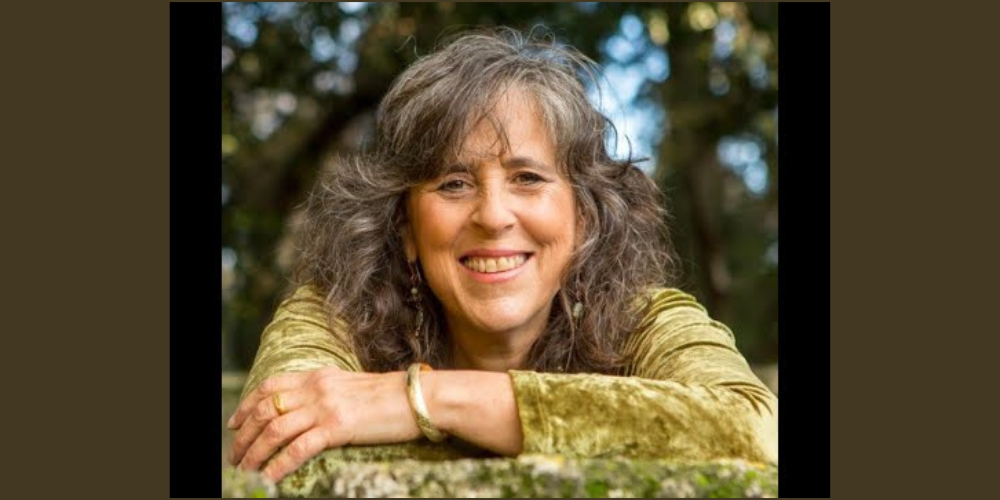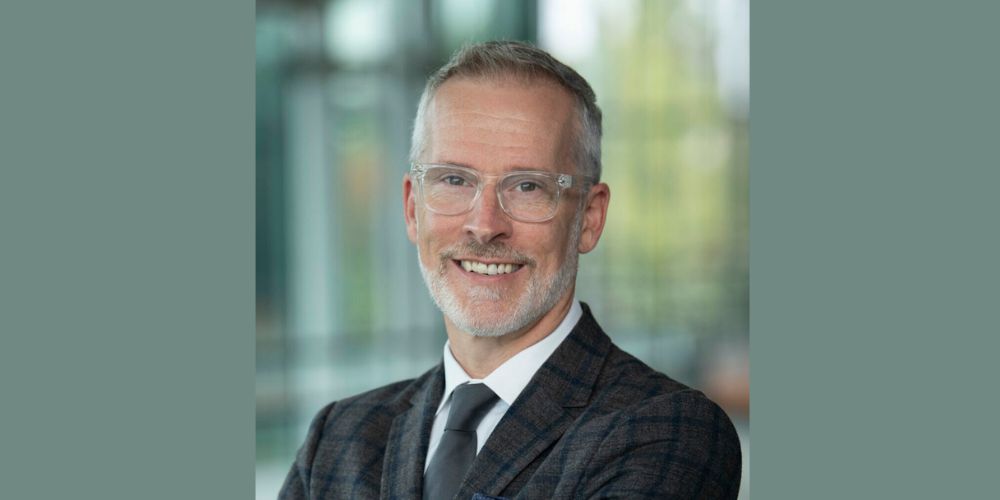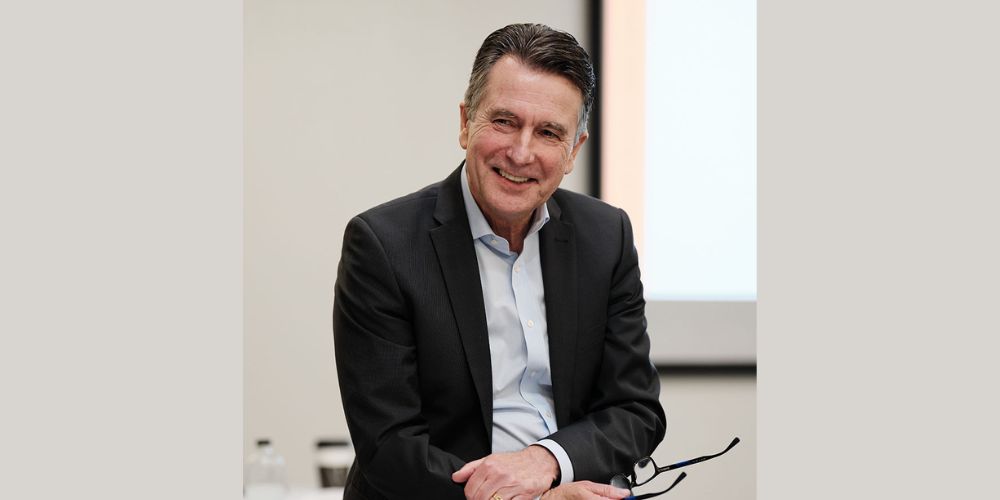Raj Girn: Folks, thanks for tuning in to another great two-part series of the ‘Transform Your Confidence Show.’ I’m your host, as usual, Raj Girn, the founder of TheOpenChestConfidenceAcademy.com. In this week’s theme, Leadership and Advocacy, I’ll be discussing how to build a leadership mindset that factors in the science and creativity of whole-brain activation. My guest is Dr. Reef Karim, who is a double board-certified psychiatrist and transformational neuroscientist. Two very large words, and we’re going to get to know a little bit more about what they mean, who has developed an innovative way of optimizing the leadership mindset to help us excel in these times.
Here is Part One of our conversation:
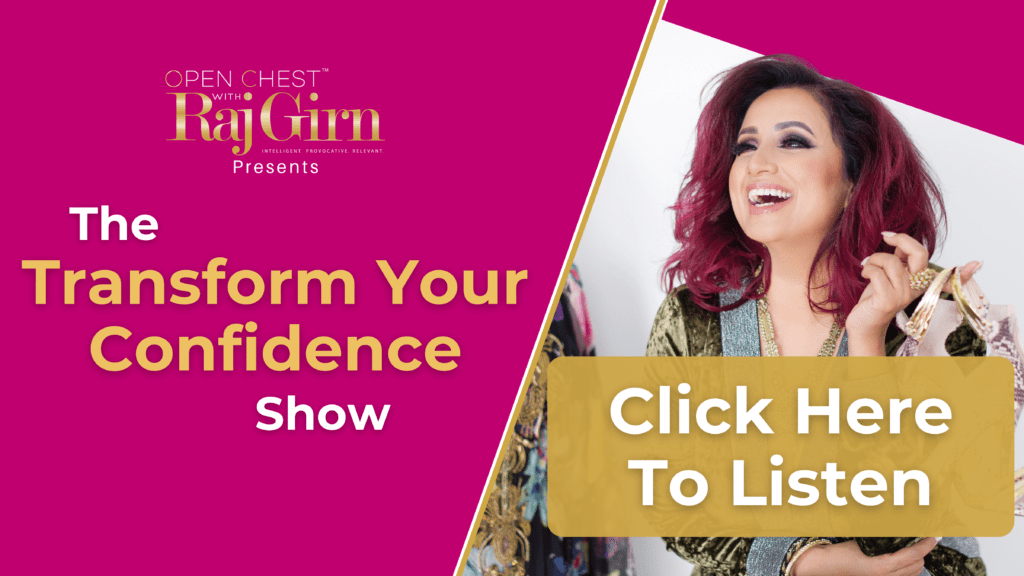
Raj Girn: Welcome to the show, Reef. It’s been quite some time since you and I have met. We go back a couple of decades, dare I say. How are you?
Dr. Reef Karim: Yeah, I don’t know if we should say a couple of decades. Maybe we could say we’ve known each other a while and not give away years here. I’m good. I’m good. Lots of changes in life as there’s lots of changes in the world. Absolutely. Yeah. I have a newborn now, so that’s exciting.
That is incredible.
Yeah, that’s very good. He’s so cute. He gets cuter every single day.
And can you share with everyone his name. You told me before we started. It’s such an incredible name and I’d love to share that with everyone because it kind of fits in with where we go with this discussion today.
Yeah. So his name is Dream and our last name is Kareem. So Dream Kareem. And when we were talking about possibly having a baby, I was joking with her and I was just like, you know, boy or girl, it’s got to be one of two names. And she was kind of nervous. She’s like, “What are the two names?” Well, they’re either going to be named Klutch Kareem and they’re going to be an amazing three point shooter and a great athlete, or they’re going to be named Dream Kareem, because it just sounds cool. And she’s like “Dream. I love that name. That’s great.” And so we had the name before we even thought about having the baby.
Oh, my gosh, I love it. And it actually has a lot to do with the kind of human being you are, how you kind of marry different facets of who you are as an identity. And I want to get into that momentarily. But I really want to thank you for agreeing to be on this show. I know that this is going to be an eye opening discussion, even mind blowing, dare I say, for anyone out there that haven’t really kind of thought about the cognitive creative relationship which you have really kind of deep dove and you’ve come up with this entire way that you can really open yourself up and be a much higher vibrating person as well as being a lot more productive and being a lot happier doing that as a human.
So let’s get into this. Folks, my goal with this two-part series is to bring you an alternative way of tapping into your highest self to optimize your work life experience. But to do so, I want to break things down into bite-sized components, because this is a topic that not a lot of people talk about and those who do tend to speak about it more from an academic perspective, which is why I’m so happy to have Reef, because although he’s got all the knowledge regarding this, he really knows how to kind of break it down and meet us where we are as the mass populous. So without further ado, I want to kind of just start at the beginning Reef. I want to ask you the obvious question: what is your whole brain activation?
Well, when we’re looking at our lives, we take things for granted. We take for granted the fact that we’re fully conscious and utilizing our entire brain power when we’re making decisions, when we decide what partner to have, when we decide what job, what occupation we’re calling, when we’re kind of following a path but we don’t quite know why we’re following it, when we just make any major decision in life. But most of the time, we are not following our full brain power or accessing our creative abilities or accessing our originality. Most of the time we’re limited by conditioning that has occurred in our life. Fear, stress, negative conditioning, negative thoughts people have put upon us have limited our exposure and diminished our perspective instead of our perspective . . .
I use the the expression or the metaphor of like a miner’s hat. Back in the day we had coal miners and they would wear these helmets and the helmets had a light and you could either shine the light directly in front of you, and that’s all that you see, or you could shine the light really wide, so you see a lot and your perspective is expansive. And I feel like, we live in a time, especially now, where there’s a lot more, it’s called cognitive rigidity. The stress, the fear, the uncertainty has caused a lot of people to kind of clamp down in their mind. And so they’re just kind of seeing what’s in front of them. And they’re not being expansive. When we’re utilizing an integrated neural network, it’s not as much about whole brain activation, it’s about the integration and communication of our neural networks. And when we’re doing that now, we’re firing on all cylinders.
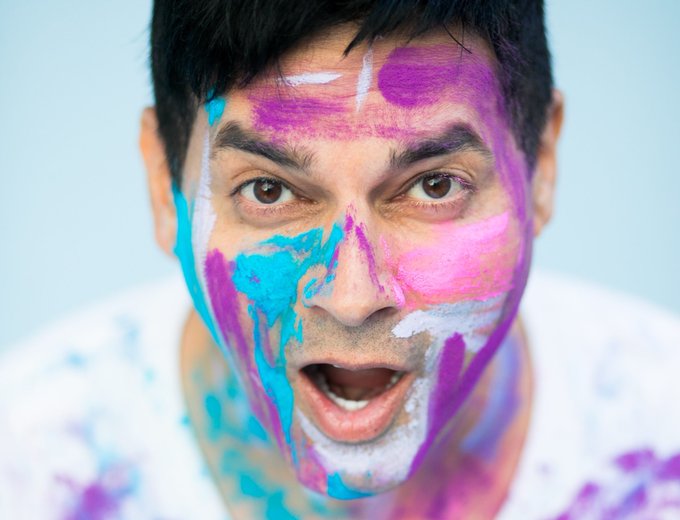
Right. So let me ask you to maybe break that down for us a little bit. For those of us, like myself, who aren’t as familiar with what that actually means, can you explain it in a way that we most of us would understand?
Well, the brain is very tricky. That’s the first thing. And it’s not like here’s this one component of your brain and it’s all you need to know. So just to break down a couple of things. The first thing is there’s a lot of myths about the brain. The fact that it’s left brain, right brain and our right brain is this and it’s more creative and blah, blah, blah. And our left brain is . . . No, not really. It’s not really left brain, right brain. Yes, there is more language in one side. Yes, there is more ability to think in an abstract way through one side, but it’s really much, much more integrated than it is left brain, right brain. So that’s the first thing. The second thing is there’s a lot of myths about we’re only using 10 per cent of our brain and 90 per cent of it is not being used. That’s not true either. We’re using our brain. And why that myth really bothers me, and I think people don’t appreciate it, is that as we go through life, we limit ourselves. It’s not that our brain is being, “Oh, my God, there’s only 10 per cent. And there’s all this that you’re not accessing.”
Well, yeah, maybe if you’re not communicating and connecting your networks, your neural networks. And I’ll get into that in a second. Yeah, maybe you are only using a smaller percentage of your brain, but most of the time we limit ourselves based on just not having perspective. We can only see what’s in front of us. We haven’t explored our mind. I mean, the biggest thing that I do to help people is I help people explore their mind and explore the unexplored parts of themselves. We have a conscious mind and we have an unconscious mind. And our unconscious is not all negative. There’s traumatic things that are stored there and there’s good stuff that stored there. And we can access new ideas, generate new ideas, generate new ideas for companies, for inventions, to stand out, to be seen, to get more influence and impact in the world by coming up with ideas and connecting the dots, often that comes from our unconscious when we’re really exploring our mind. So when we look at the brain, there’s many different networks. There’s a reward circuitry network, there’s a fear network, there is a memory circuit network, there’s an imagination network, there’s an empathy network. There’s all sorts of things happening in our mind. And as we have more access and more connection between these networks, we’re better able to navigate a healthier, happier, more fulfilled, meaningful life.
“Most of the time we limit ourselves based on just not having perspective. We can only see what’s in front of us. We haven’t we explored our mind.” ~Dr. Reef Karim
You know, it’s so interesting that you say that because there is so much mental health discussion that’s happening, or lack thereof right now, with all of the external stuff that’s going on right now. And just a lot of what that’s going to mean as we move into the future. I mean, we look at pandemic babies being born and the world through their eyes. When you think about these dynamics that work, dynamics that you and I grew up with, not dynamics that potentially our parents grew up with. I want to ask you this question. What could be potentially a negative from accessing everything that we have at our fingertips with our brain, the creative, the cognitive and all of these other things that you just finished mentioning? If you consider that people who are already not using that much of their brain, even though they have the whole brain, you know, at their fingertips, and they’re still going through a lot of traumatic experiences. Like what are your thoughts? Are we opening up Pandora’s box by allowing ourselves to harness everything when we can barely handle the little bit that we are accessing? I wanted to ask you that question.
Well, I think it’s a good question because you’re acknowledging the fact that not everybody should hit the turbo button of their ability of their brain at this time because we’re all in a different state of mind. And there’s two things I think about with this. The first is that, you know, some people are still dealing with traumatic events in their life. Some people need their life to be a little more safe or a little more limited at this point in time. And that’s perfectly fine, there’s absolutely no judgment there because you have to be in a certain place. And even in my entire program and my platform, I have, where is your state of mind right now? And I have these five heads that kind of dictate where you are. And you have to be at a certain state of mind to engage in my program, which is all about expanding your mind. And and if you’re not, if there’s an active mental health issue . . . And when I say mental, the thing we need to say about mental health is mental health is the wide spectrum from human pathology to human potential. It doesn’t just mean you’re sick.
Mental health is not mental illness. It’s mental health. It’s all the great stuff as well as the dark stuff. And so when somebody has a mental health problem, to me, all it means is that, on the spectrum of perfectly great, happy, meaningful life to not they’re closer to not at that moment in time. And none of us are perfect. And we all go through stuff. And so they’re going through that right now. So, yeah, they are going to be people that maybe shouldn’t do an expansive program at this point in time. They should work on whatever’s happening with them, with their mental health, with substances, with toxic relationships, with whatever. And as they move into a state of mind that’s more transitional and not crisis, then then they should do a program like this. The other thing that I think about is the state of the world. And when we look at the state of the world, it’s not just the pandemic. I mean, I made a huge, huge shift in my life to help people in regards to human potential and getting out of their own way, as opposed to my previous life, which I was an academic. I published in a bunch of journals. I ran my own mental health treatment center here in L.A. and I was very much like the the doctor that was an academic and thought leader in that space of diagnosis and treatment and all of that. And that was fine and that was good. And I hope I did my very best to help as many people as I can.
But I think there’s something bigger happening out there. And I wanted to be a part of that and and lend as much advice as I could about the human mind and to help people to grow and expand their lives because the world would be a better place for it. And the digital media that is coming at us, the stimuli is really hard for a lot of people because when when we’re utilizing our mind for just daily activities, we’re processing. We process everything. We process when the doorbell rings. I’m processing, who is that? Is that Amazon? Is that some scary person that I don’t want to talk to? Is it a salesperson? I have to process information. Every time we go on Instagram or we go on social media and we get an ad that’s targeting our pain point specifically because through the pixels and through everything else, they know who we are and what we’re looking for, whether it’s to buy something or they’re accessing a piece of our mind. We’re processing that ad. When it’s watching CNN all day or watching Fox or watching this BBC or watching whatever, we’re taking in all that information and our brain only has so much space. And you need space to envision something new in your life. You need space for creativity to see perspectives you haven’t seen. You need space for originality, to follow your inner wisdom. And if you don’t have that space because your mind is so cluttered with all of the stimuli going out there with digital media, you have no room for anything else.
“You need space for creativity to see perspectives you haven’t seen. You need space for originality, to follow your inner wisdom. And if you don’t have that space because your mind is so cluttered with all of the stimuli going out there with digital media, you have no room for anything else.” ~Dr. Reef Karim
So let me ask you this. For those people, because I want to then move into your program because I just find it so fascinating. I think it’s something that the right people will really resonate with. Before I get to that, I just want to ask you a couple of other questions. And one is, what are the actual, on the flip side, the advantages of harnessing the full potential of what your brain could be in all of the various different silos? Which you said aren’t silos. They work together. So, like, what would be some of the advantages that you want to kind of just hone in on that people need to know about?
It’s incredibly exciting. When I’ve worked with people that have made that shift. I mean, I just start smiling. I just get really excited. The cheesy version of this is the movie Limitless, where he takes a pill and all of a sudden . . . But at the very beginning, before the movie gets way out of control, at the very beginning there was a confidence there, like just at the beginning. There’s a confidence there. There’s a courage there. There’s a connectivity there. There is an energy there. There’s an inspiration. There’s a motivation. And I personally think it’s fueled by a couple of things. It’s fueled by the connectivity of connecting a more creative mind and a more high performing mind with your inner wisdom, which is what makes you who you are in this world? What differentiates you from everybody else?
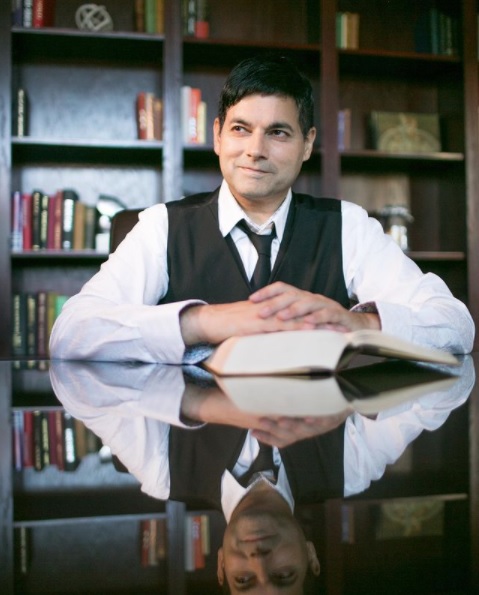
We all have our own original path that we’re on. And I don’t care who you are. And if you’re doing the exact same thing as somebody else, you have personal experiences that are different than that person sitting next to you and you have your own wisdom and your own journey and your own path. And so connecting that inner wisdom to a creative mind, to your heart and the connectivity of what you’re looking for in the world, which is we’re all looking to be loved and to love and to connect with other people. When you attach that together, it is incredibly powerful and I think it’s all fueled by creativity. I am a huge believer in, if you tap into your creative mind and you see things other people don’t see, in a good way, and you gain perspective on the big picture of the world and your life through your creative power, because it is creative power, it is so exciting. People I’ve worked with are so inspired and motivated and just they’re just ready to do anything, whether it’s a work of art or starting a nonprofit or starting a small business or connecting the dots and creating a YouTube channel or a TED talk or writing a book. It’s just very inspirational.
It’s so interesting that you say that because spirituality is another kind of facet of our brain, our human experience that we tap into, whether we are aware of it or not. I know that’s a whole other discussion. Let me just ask you this question. Spiritual masters like Buddha, Jesus, Nanak, all of the above, were are considered to be, and I’m going to use the term because it’s easier for me to kind of understand the different layers of the brain, they would consider to be whole brain activated. Right? How does spirituality fit into the mix of everything that you’re talking about? I just want to ask you that question, because spirituality is a huge part of my ecosystem in terms of how I experience myself and how I connect with the outer world. And I know there’s a lot of people that would be interested in that.
Yeah, and that’s a great way to put it, how you experience yourself. I mean, in my mind, I’m not going to speak for Buddha or Jesus or, you know, but I can say that we had an entire spirituality section of our treatment center that I had for 10 years. And I was working with people and moving them from a state of crisis to stabilization to more elevated growth. And spirituality is is an energy, it’s about hope, it’s about belief, it’s about faith in you, it’s about connection through your inner energetic source. And for many, it’s hard to to access that, to feel that, to feel that you even have spirituality because there’s so much stress in the world and there’s so much stimuli in the world and there’s so many so many potential distractions in the world that you get caught up in some day to day stuff and you don’t connect with that deeper sense of you which guides you. It’s constantly guiding you, but you can’t hear it because it’s too loud out there in the noisy, crowded world that we’re in.
“Spirituality is an energy, it’s about hope, it’s about belief, it’s about faith in you, it’s about connection through your inner energetic source” ~Dr. Reef Karim
So to me, the people that have really kind of connected to their spirituality, have learned to quiet the noise out there and have found ways of connecting internally to their own path and their own journey and their own energy. And when you talk about whole brain activation, you also have to look at turning down parts of your mind. There’s a lot of research on on monks that were in a state of enlightenment and what happens in their brain in a state of enlightenment. And one of the things that happens, yes, you have activation of your attentional circuitry and there’s more focus because you’re focusing on whether it’s mantra based or just a straight meditative state. But you have areas of your brain that shut off while you’re in deep meditation. Your superior parietal lobe, differentiating self from non-self shuts down, which is great. Which means you’re not focusing on the Instagram ad. You’re not focusing on, how am I going to make it in the world? Am I going to make more money than my neighbor or do I have a better car? Do I have this? Do I have that? You’re not focusing as much on that, the ego diminution kind of just dissolves and you end up in more of this kind of spiritual state, you end up more in this energetic state.
So that’s why I don’t like the term whole brain activation as much because I think it’s more about accessing the abilities and resources of your mind. And sometimes you’re turning things on more and activating it. Sometimes you’re turning down areas and deactivating certain areas of your mind in order to connect and in order to tap into your inner resources.
So you know what I’m hearing you say here, and it kind of really is an interesting way of looking at things, is we’re always put under this kind of pressure that we have to do more, we have to be more. So I love the fact that you say that the whole brain activation piece isn’t what you need to focus on. The focus needs to be on the part of the brain that you need to work on or experience for any given task that you’re trying to accomplish. That task could be spiritual, could be emotional, it could be creative. Albeit you have said that all of the above is creativity. Everything is about creativity. I love that you said that to me because it actually really made me understand how important what you do is. Because we’re put under a lot of pressure, pop culturally. We’ve got to do more, whole brain, whole brain, whole brain use everything that you possibly can. But it’s not about that, folks. It’s about using the part you need for whatever the given intention is. So let’s focus now that we’ve got people a little bit more intrigued about what all of this is about. Let’s tap into your program. Tell us first what is it called Reef? And go through kind of what the journey would be like for someone that would decide that this is something they want to do, just so we can be sure that we are, in fact, speaking to the right people in regards to this.
“The whole brain activation piece isn’t what you need to focus on. The focus needs to be on the part of the brain that you need to work on or experience for any given task that you’re trying to accomplish.” ~Raj Girn
Yeah, that’s great. The program is called the Mad Genius Incubator. And I’ll tell you where this came from. I know it’s provocative, it’s exciting, it’s energetic, it’s great. And where this came from is I’ve always been fascinated by the term madness my whole life. And it’s a word of duality. And it’s really my word. I’m a psychiatrist, I run mental health treatment centers, I’ve done research, all the academic stuff. And on one side of that word is chaos and stress and overwhelm and pathology and darkness and all of it. On the other side of that word is ingenuity, creativity, originality, inventiveness, like bringing new things to the world. And I find that words so exciting that I built my entire brand around that word. So my whole brand is around that word. I have a show coming out probably in August called School of Madness. My entire brand is the Mad Genius brand and Mad Genius Incubator is the big product.
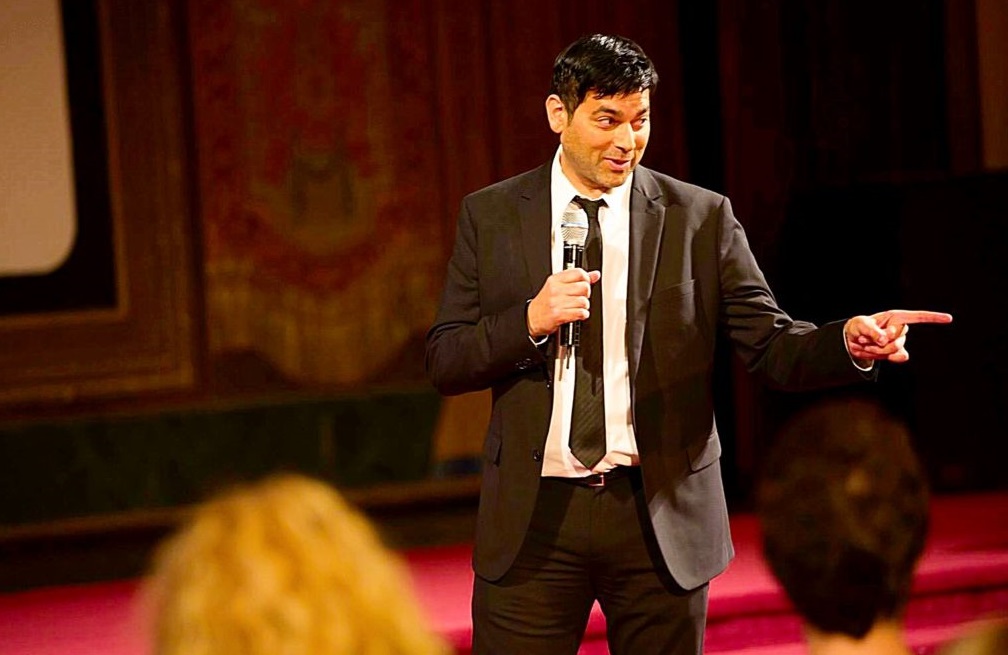
So back in the day, in the olden days, we had role differentiation. There was the automaker, there was the plumber, there was the hairstylist. Everybody had a role. And one of those roles was the mad scientist or the mad genius. And it was usually a person who lived at home and had inventions laying all over the place. And it was a cluttered area and they had crazy hair and they had this weird affinity for lightning. And it was just this funny kind of character. But their job was to challenge societal norms. Their role in life was to create something new or create something better. And that was their role. And that was the person who did that. And everybody else just did their job. You know, maybe they thought of something interesting, but that wasn’t necessarily their role. Now, in this crowded world we’re, in this noisy and high, technologically advanced world we’re in, where so many people want to be entrepreneurs, where so many people want to leave legacy and make impact and have greater influence and take these amazing ideas that are locked in here somewhere and bring them to life, make their ideas come alive. Where so many people want to do that, you have to think like a modern day mad genius.
You have to engage in divergent thinking. You have to access your creative abilities. You have to think more originally and differentiate from other people so that you can bring your ideas and stand out. You need more courage, courage to stand out, courage of differentiation, courage to fail, courage to come back from failure, courage of success, courage of uncertainty. All of those things are incredibly important. And you need mental clarity because if you’re not clear, if you don’t leave space for inventiveness, if you don’t leave space for creativity and originality, you’ll never access it. You’ll never do it. So for me, it was the perfect marriage of creativity and neuroscience, creativity and psychology, and connecting that with our spiritual, original, authentic sense of who we are. And it’s that triad, and then sprinkle in business on top of it, and that’s really what the program is.
“You have to think like a modern day mad genius. You have to engage in divergent thinking. You have to access your creative abilities. You have to think more originally and differentiate from other people so that you can bring your ideas and stand out. ” ~Dr. Reef Karim
So the Mad Genius Incubator is a 90-day program. And I studied this and I tested it out and 90 days is really the right amount of time. We have a small kind of concierge group of people that come together. They all have one big idea, and that big idea could be something for themselves that just helps them to evolve and grow as a person. Or that big idea could be something that they want to launch to the world. And it could be a new invention, it could be a work of art, it could be a nonprofit, it could be small business, a book, a YouTube channel, a movie script, an album. It could be anything. But they’re all looking to tap into their creative mind and their creative abilities. And I live lead the whole thing because it’s just super exciting for me.
Wow.
To contact Dr. Reef Karim: Web, Instagram, Twitter, LinkedIn



